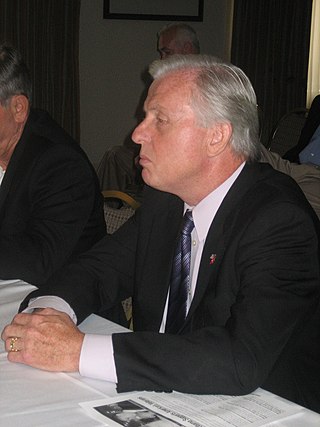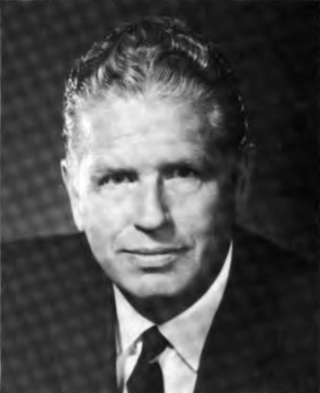| ||||||||||||||||||||
| ||||||||||||||||||||
 County results Shapp: 40–50% 50–60% 60–70% Broderick: 40–50% 50–60% 60–70% | ||||||||||||||||||||
| ||||||||||||||||||||
The 1970 Pennsylvania gubernatorial election was held on November 3. Democrat Milton Shapp challenged incumbent Republican Lieutenant Governor Ray Broderick.
| ||||||||||||||||||||
| ||||||||||||||||||||
 County results Shapp: 40–50% 50–60% 60–70% Broderick: 40–50% 50–60% 60–70% | ||||||||||||||||||||
| ||||||||||||||||||||
| Elections in Pennsylvania |
|---|
 |
The 1970 Pennsylvania gubernatorial election was held on November 3. Democrat Milton Shapp challenged incumbent Republican Lieutenant Governor Ray Broderick.
Lieutenant Governor Ray Broderick was unopposed for the Republican nomination.
The Democratic campaign was a bruising rematch between 1966 nominee Milton Shapp and Auditor General Bob Casey. As in the prior election, Shapp and Casey proved to be disparate personalities. The liberal and business-oriented Shapp ran an aggressive campaign into which he injected much of his own funding, while the affable Casey ran a relatively conservative campaign and appealed to labor and rural voters.
| Party | Candidate | Votes | % | |
|---|---|---|---|---|
| Democratic | Milton Shapp | 519,161 | 49.15 | |
| Democratic | Bob Casey | 480,944 | 45.53 | |
| Democratic | Harvey Johnston | 33,427 | 3.17 | |
| Democratic | Sam Neff | 8,957 | 0.85 | |
| Democratic | Walter Tray | 8,252 | 0.78 | |
| Democratic | Ed Lavalle | 5,557 | 0.53 | |
Although Pennsylvania's Democratic establishment had not been keen on Shapp during his first run for the executive office, the support of Lieutenant Gubernatorial nominee Ernie Kline, a power broker within the party, caused support to much better coalesce behind Shapp than it had in 1966. Shapp, who was Jewish, also dealt with a lower degree of anti-Semitism during this campaign, as moderate voters were put off by the hateful messages that had been transmitted during the prior election cycle. Broderick's campaign faced an uphill battle, as he was forced to deal with the unpopularity of his boss, Governor Ray Shafer. Furthermore, Broderick was portrayed as unrealistic in his promises, as he asserted that he would not raise taxes, despite a massive state deficit. Broderick attempted to present himself as an ally of Richard Nixon and ran on a corresponding law-and-order platform; however, his tough stances often backfired, such as when outrage ensued over a Republican cartoon that depicted Shapp's liberal view as equivalent to the Viet Cong. [8]
Shapp won victory by a huge margin. His liberalism and local base allowed him to nearly win the suburbs of Philadelphia, a GOP stronghold at the time. Furthermore, he not only performed well in conservative Central Pennsylvania, but even defeated Broderick by a considerable margin in those locales. [8]
| Pennsylvania gubernatorial election, 1970 [9] [10] | |||||
|---|---|---|---|---|---|
| Party | Candidate | Running mate | Votes | Percentage | |
| Democratic | Milton Shapp | Ernie Kline | 2,043,029 | 55.21% | |
| Republican | Ray Broderick | Ralph Scalera | 1,542,854 | 41.69% | |
| Constitutional | A.J. Watson | Joe Brewer | 83,406 | 2.25% | |
| American Independent | Francis McGeever | Conrad Moore | 21,647 | 0.58% | |
| Socialist Workers | George Taylor | Paul Barnes | 3,588 | <0.01% | |

Robert Patrick Casey Sr. was an American lawyer and politician from Pennsylvania who served as the 42nd governor of Pennsylvania from 1987 to 1995. He served as a member of the Pennsylvania Senate for the 22nd district from 1963 to 1968 and as Auditor General of Pennsylvania from 1969 to 1977.

Raymond Philip Shafer was an American attorney and politician who served as the 39th governor of Pennsylvania from 1967 to 1971. Prior to that, he served as the 23rd lieutenant governor of Pennsylvania from 1963 to 1967 and as a Pennsylvania state senator from 1959 to 1962. He was a national leader of the moderate wing of the Republican Party in the late 1960s.

Milton Jerrold Shapp was an American businessman and politician who served as the 40th governor of Pennsylvania from 1971 to 1979 and the first Jewish governor of Pennsylvania. He was also the first governor of Pennsylvania to be eligible for, and re-elected to, consecutive four-year terms per the 1968 Pennsylvania Constitution.

Catherine Baker Knoll was an American politician and member of the Democratic Party. She was the 30th lieutenant governor of Pennsylvania, serving under Governor Ed Rendell from 2003 to 2008, when she died in office. Prior to that, she served as the 72nd Pennsylvania treasurer from 1989 to 1997. She was the first woman to be lieutenant governor of Pennsylvania.
The Pennsylvania Republican Party (PAGOP) is the state affiliate of the Republican Party in Pennsylvania. It is headquartered in Harrisburg. Its chair is Lawrence Tabas and is the second largest political party in the state behind the Pennsylvania Democratic Party.

Jack E. Wagner is an American Democratic politician from the Commonwealth of Pennsylvania. He served as Pennsylvania Auditor General, and previously served in the State Senate and Pittsburgh City Council.

Raymond Joseph "Ray" Broderick was an American jurist and politician from the Commonwealth of Pennsylvania. A member of the Republican Party, he served as the 24th lieutenant governor of Pennsylvania from 1967 to 1971 and as a United States district judge of the United States District Court for the Eastern District of Pennsylvania.

Ernest P. "Ernie" Kline was a Democratic member of the Pennsylvania State Senate and the 25th lieutenant governor of Pennsylvania, serving from 1971 to 1979.

The 2002 Pennsylvania gubernatorial election was held on November 5, 2002, to elect the Governor and Lieutenant Governor of Pennsylvania. Incumbent Republican governor Mark Schweiker, who took office in 2001 when Tom Ridge resigned to become Homeland Security Advisor, was eligible to run for a full term, but did not do so. Democrat Ed Rendell, the former mayor of Philadelphia and Chairman of the Democratic National Committee, emerged from a competitive primary to win the general election against Republican Pennsylvania Attorney General Mike Fisher.

The 1998 Pennsylvania gubernatorial election was held on November 3, 1998. The candidates were incumbent Republican Tom Ridge, Democrat Ivan Itkin, Constitutionalist Peg Luksik and Libertarian Ken Krawchuk. Ridge, a popular moderate, won with 57 percent of the votes cast.

The 1994 Pennsylvania gubernatorial election was held on November 8, 1994. The incumbent governor, Bob Casey, Sr. (Democrat), was barred from seeking a third term by the state constitution. The Republican Party nominated Congressman Tom Ridge, while the Democrats nominated Mark Singel, Casey's lieutenant governor. Ridge went on to win the race with 45% of the vote. Singel finished with 39%, and Constitution Party candidate Peg Luksik finished third, garnering 12% of the vote.

The Pennsylvania lieutenant gubernatorial election of 2010 was held on November 2, 2010. The winning candidates for Governor and Lieutenant Governor will serve a four-year term from 2011 to 2015. In Pennsylvania, the Lieutenant Governor is elected on the same ticket as the Governor, so the only campaign for this office was the primary election. As a result of Tom Corbett's election to the position of governor, Jim Cawley became the new Lieutenant Governor.

The 1990 Pennsylvania gubernatorial election was held on November 6, 1990. Incumbent Democratic governor Robert P. Casey easily defeated Republican Barbara Hafer. Governor Casey defeated Hafer by a margin of 35.29%, and carried 66 out of 67 Pennsylvania counties.

The 1986 Pennsylvania gubernatorial election was held on November 4, 1986. Democrat Bob Casey narrowly defeated Republican Bill Scranton III, in a race that featured two very high-profile candidates. As of 2022, this is the most recent Pennsylvania gubernatorial race to have a margin within five points for either party.

The 1978 Pennsylvania gubernatorial election was held on November 7, 1978. Incumbent Governor Milton Shapp was constitutionally ineligible to run for a third consecutive term in office. Republican Dick Thornburgh defeated Democrat Pete Flaherty in the general election.

The 1974 Pennsylvania gubernatorial election was held on November 5. Incumbent Democratic Governor Milton Shapp defeated Republican Drew Lewis. Under the state's 1968 constitution, Shapp was the first governor who was eligible to run for consecutive terms.

The 1966 Pennsylvania gubernatorial election was held on November 8. Republican Ray Shafer, the state's incumbent Lieutenant Governor, was elected to the state's highest office after holding off a charge from future governor Milton Shapp.

The 1962 Pennsylvania gubernatorial election was held on November 6. Republican Bill Scranton and Democrat Richardson Dilworth, each a member of a powerful political family, faced off in a bitter campaign.
Governor Milton Shapp of Pennsylvania unsuccessfully sought the Democratic Party nomination for president of the United States in the 1976 election. Shapp won reelection as governor of Pennsylvania in the 1974 election, the first Pennsylvania governor to be elected to a second four-year term following an amendment permitting this in 1967, and had hoped to translate his relative popularity in Pennsylvania into the groundwork of a successful presidential campaign.

Thomas Zeno Minehart was an American lawyer and politician from the state of Pennsylvania. He was a member of the Philadelphia City Council, chaired the Pennsylvania Democratic Party, and served as Pennsylvania Auditor General and Pennsylvania Treasurer during the 1960s.